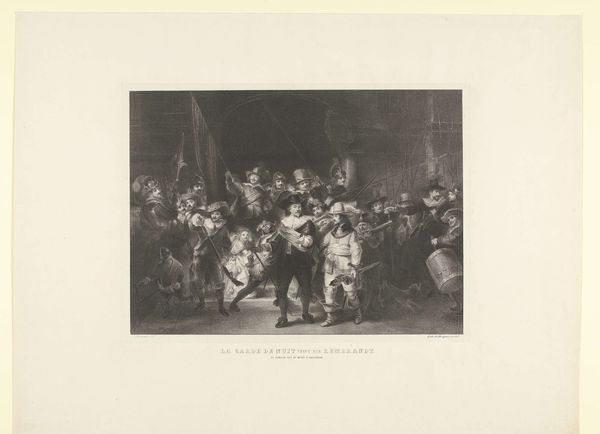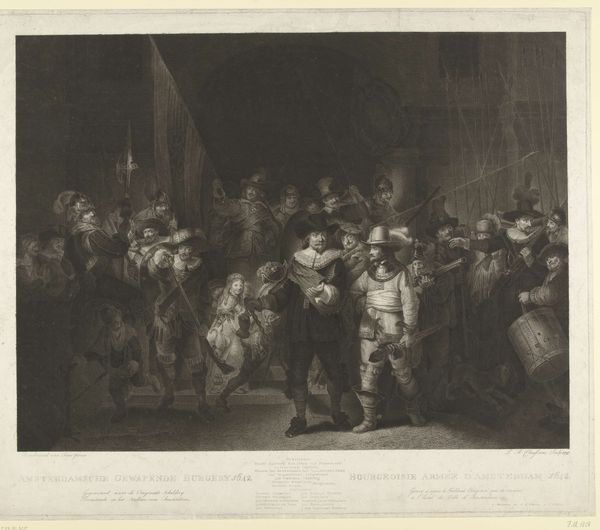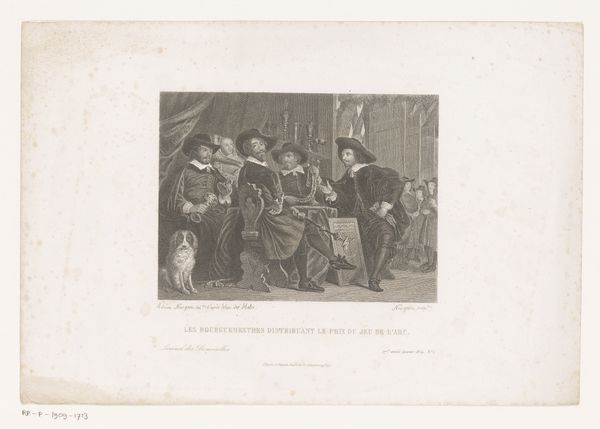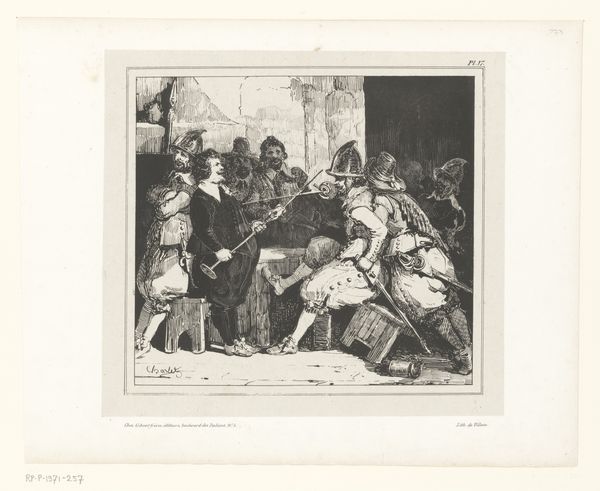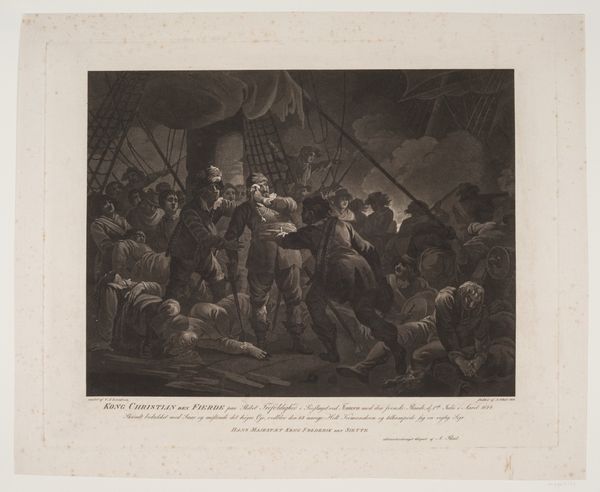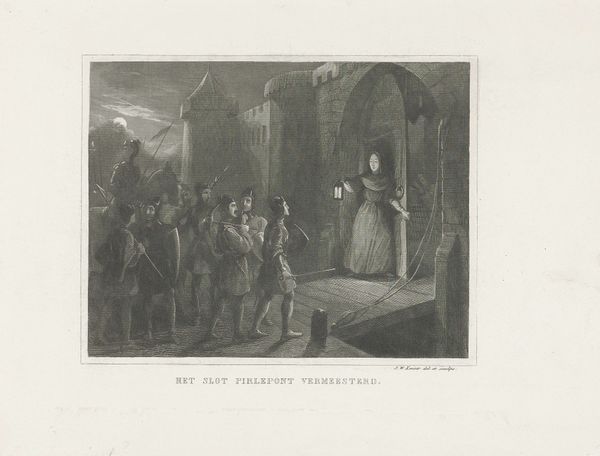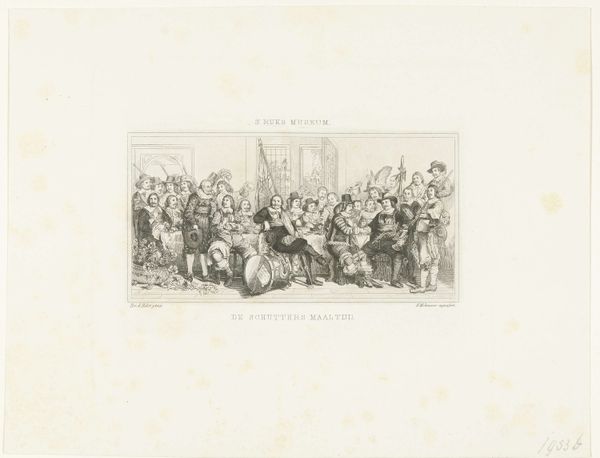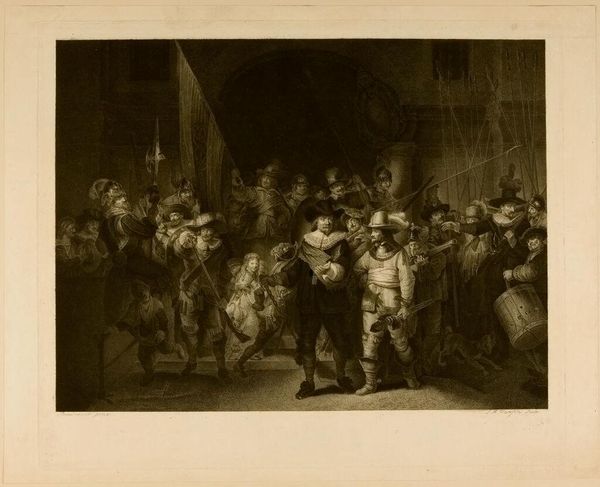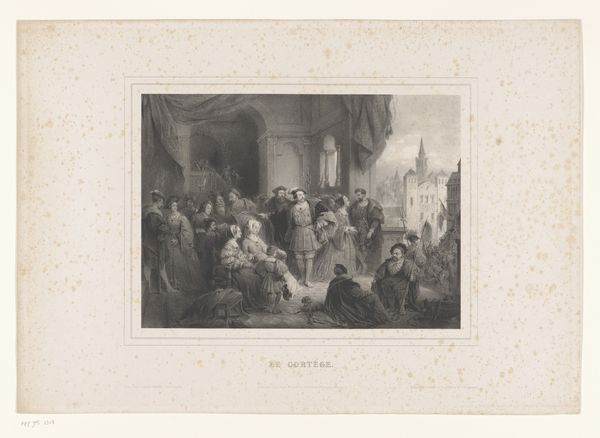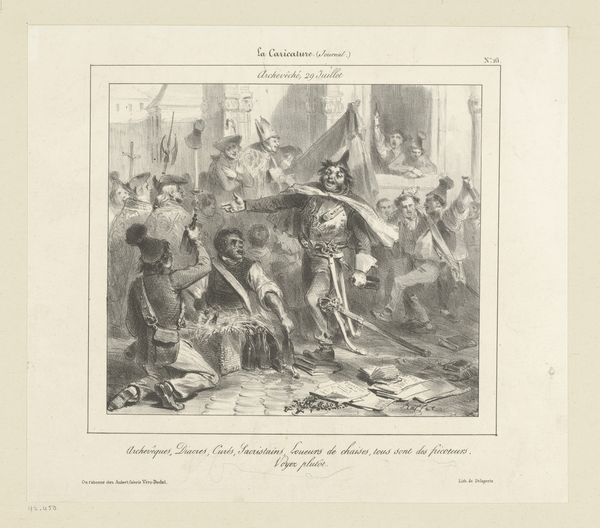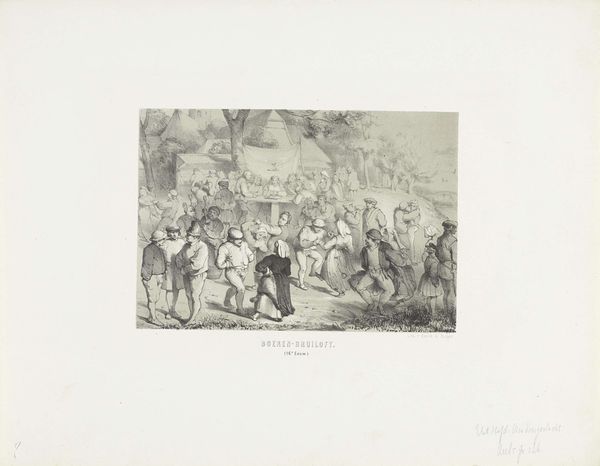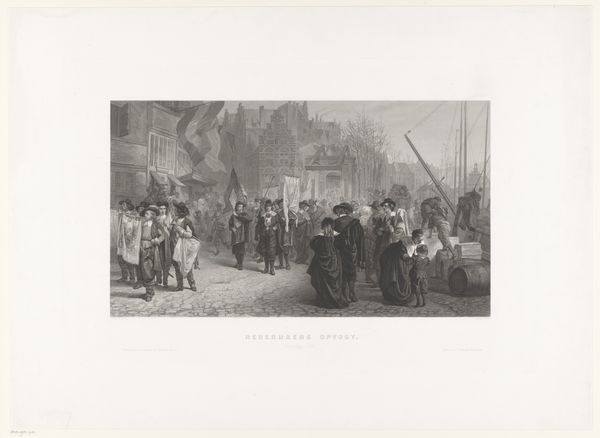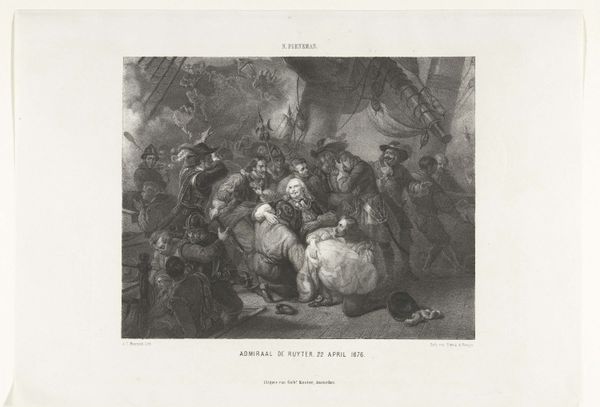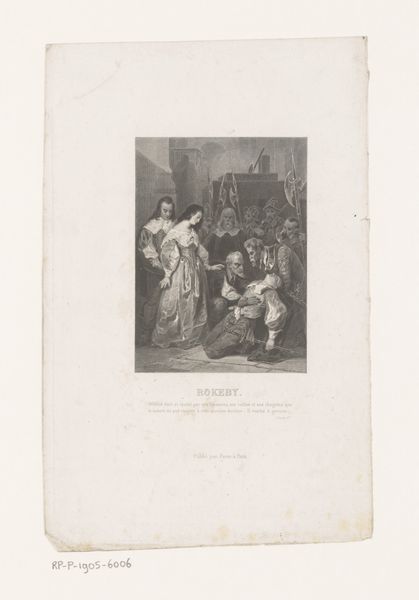
print, etching, engraving
#
weapon
#
dutch-golden-age
# print
#
etching
#
group-portraits
#
genre-painting
#
history-painting
#
engraving
Dimensions: height 312 mm, width 445 mm
Copyright: Rijks Museum: Open Domain
This print, titled "Nachtwacht," was made by Gerhardus Fredericus Eilbracht in the 19th century. It’s a reproduction of Rembrandt’s famous painting "The Night Watch," made using a technique called etching, where lines are incised into a metal plate, which is then inked and printed. Looking closely, you can see how Eilbracht uses the etched lines to mimic the light and shadow of Rembrandt's original. This was a painstaking process, requiring immense skill. Etching allowed for the mass production of images, making art accessible to a wider audience and reflecting the rise of a consumer culture. The act of reproducing "The Night Watch" through etching also carries social significance. It speaks to the desire to democratize art, to bring masterworks from the elite sphere into the homes of ordinary people. Though a print is never quite the same thing as a painting, it does allow for a different kind of engagement, more intimate and more broadly shared.
Comments
No comments
Be the first to comment and join the conversation on the ultimate creative platform.
